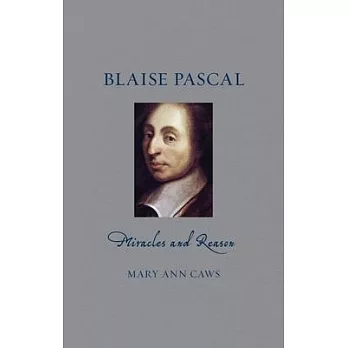Few people have had as many influences on as many different fields as true Renaissance man Blaise Pascal. At once a mathematician, philosopher, theologian, physicist, and engineer, Pascal's discoveries, experiments, and theories helped usher in a modern world of scientific thought and methodology. In this singular book on this singular genius, distinguished scholar Mary Ann Caws explores the rich contributions of this extraordinary thinker, interweaving his writings and discoveries with an account of his life and career and the wider intellectual world of his time.
Caws takes us back to Pascal's youth, when he was a child prodigy first engaging mathematics through the works of mathematicians such as Father Mersenne. She describes his early scientific experiments and his construction of mechanical calculating machines; she looks at his correspondence with important thinkers such as Ren Descartes and Pierre de Fermat; she surveys his many inventions, such as the first means of public transportation in Paris; and she considers his later religious exaltations in works such as the "Memorial." Along the way, Caws examines Pascal's various modes of writing--whether he is arguing with the strict puritanical modes of church politics, assuming the personality of a na ve provincial trying to understand the Jesuitical approach, offering pithy aphorisms in the Pens es, or meditating on thinking about thinking itself.
Altogether, this book lays side by side many aspects of Pascal's life and work that are seldom found in a single volume: his religious motivations and faith, his scientific passions, and his practical savvy. The result is a comprehensive but easily approachable account of a fascinating and influential figure.



 天天爆殺
天天爆殺  今日66折
今日66折 
























 博客來
博客來 博客來
博客來 博客來
博客來 博客來
博客來 博客來
博客來